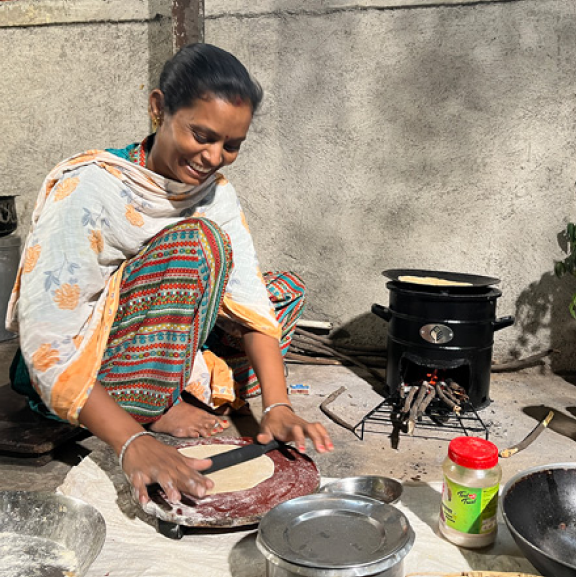
A Biomass Cookstove sustainability program is an initiative aimed at promoting the use of clean and efficient cookstoves powered by biomass fuels, such as wood, crop residues, and animal dung, in order to improve the sustainability of cooking practices in households, particularly in developing countries. These improved cookstoves are designed to minimize fuel consumption, reduce emissions of harmful pollutants, and improve cooking efficiency, thereby benefiting both the environment and the users.The program focuses on addressing the environmental, health, and social challenges associated with traditional cooking methods that rely on open fires or inefficient stoves.
Traditional cooking methods often involve burning biomass fuels in open fires, which leads to significant environmental issues such as deforestation, greenhouse gas emissions, and air pollution. A sustainability program aims to mitigate these impacts by promoting the use of improved cookstoves that are designed to burn biomass fuels more efficiently, reducing fuel consumption and emissions.
Traditional cooking methods expose household members, especially women and children, to high levels of indoor air pollution due to the inefficient burning of biomass fuels. This can lead to respiratory problems, eye irritation, and other health issues. By promoting the adoption of improved cookstoves, a sustainability program aims to reduce indoor air pollution and improve the health and safety of users.
Improved cookstoves are designed to maximize the energy efficiency of biomass fuel combustion. They incorporate features such as better insulation, combustion chambers, and ventilation systems, which result in more efficient burning and reduced fuel consumption. This not only reduces the pressure on biomass resources but also saves households money by decreasing their fuel expenses.
A biomass cookstove sustainability program can have positive socioeconomic impacts. By reducing the time and effort required to collect biomass fuels, improved cookstoves can free up women and children, who are often responsible for fuel gathering, to engage in other productive activities such as education, income generation, or community development. Moreover, the program can create employment opportunities in the production, distribution, and maintenance of the cookstoves.
A successful sustainability program includes awareness campaigns and educational initiatives to promote the benefits of improved cookstoves and to facilitate behavior change. These efforts can include training programs, workshops, community engagement, and partnerships with local organizations to ensure that users understand the advantages of adopting clean cookstoves and how to use and maintain them effectively.
Many biomass cookstove sustainability programs facilitate access to affordable financing options for households and entrepreneurs to purchase or produce improved cookstoves. This helps overcome the upfront cost barrier and encourages wider adoption of sustainable cooking solutions.
To ensure the effectiveness and impact of the program, monitoring and evaluation systems are put in place. These systems assess the adoption rate of improved cookstoves, evaluate their performance, and gather feedback from users to continuously improve the technology and implementation strategies.
Biomass cookstove sustainability programs often involve collaboration among governments, non-governmental organizations (NGOs), international agencies, stove manufacturers, and local communities. These partnerships help mobilize resources, share expertise, and leverage collective efforts to achieve program goals.